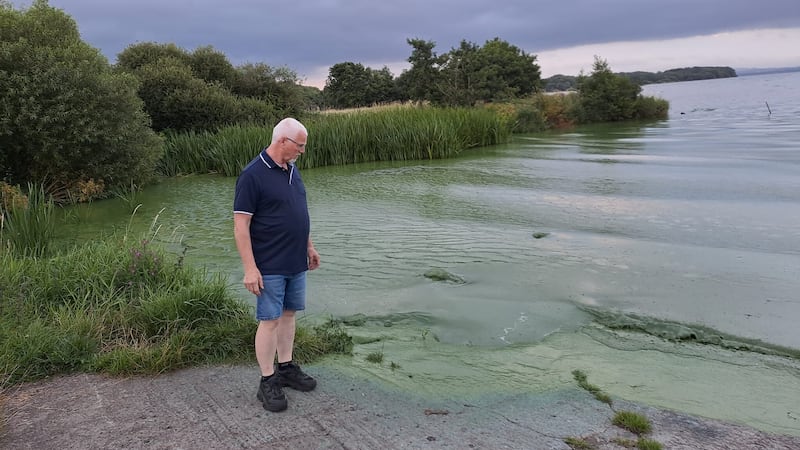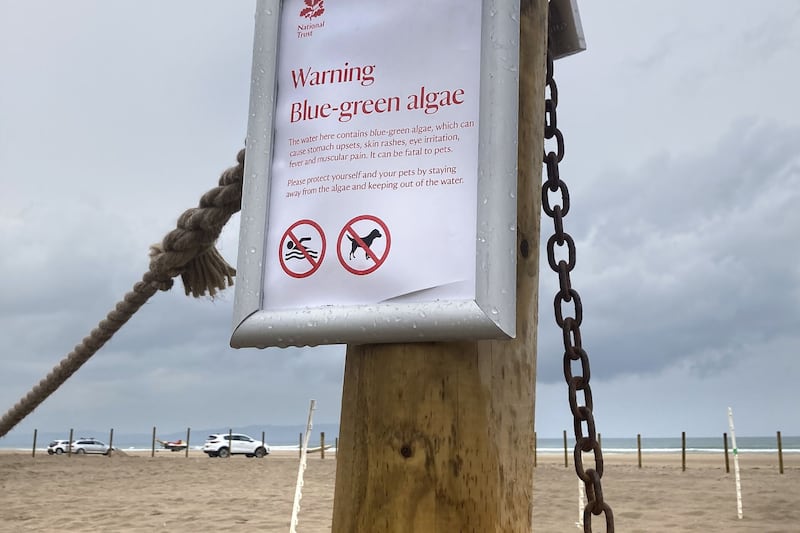Toxic blue algae could wash up any shore on Lough Neagh so widespread are the blooms spreading across the body of water, agriculture officials said on Friday.
Sludge a foot deep was reported close to the shore line in parts of the lough as representatives warn of a "major catastrophe" unfolding on the lough and connected waterways.
The blue-green algae, which can kill animals and harm humans, is being reported in multiple places, from the south shore along the western edge and on the north side of the lough.
People who live on the lough said it is the worst they have ever seen, with one local representative said "nothing could have prepared him for the sight" as he described such thickness in parts boat owners feared it would ruin their engines if they tried to push out on to the water.
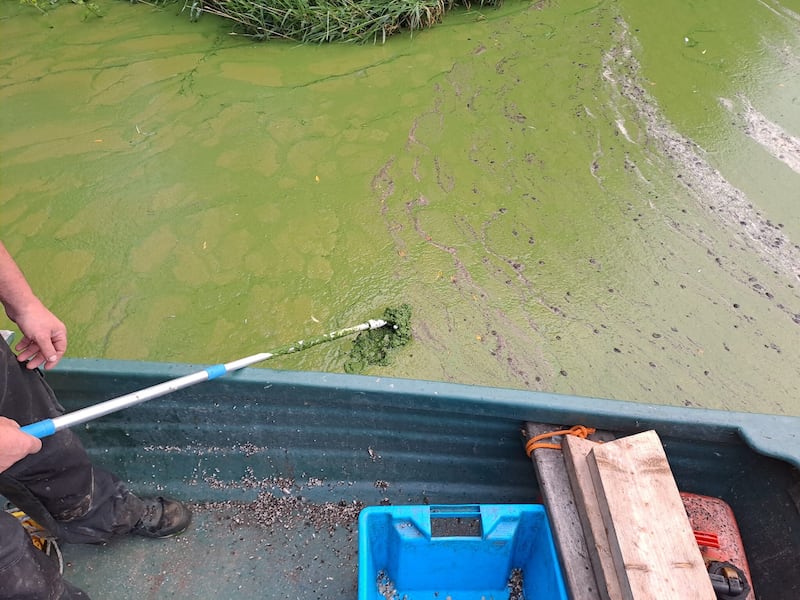
“A major catastrophe is unfolding on the Lough. Young fry that should be feeding along the shore are lying dead on the surface as there is obviously no oxygen in the water," said Antrim and Newtownabbey Councillor Henry Cushinan.
The Sinn Fein representative added: “The sludge is so thick that the boats you see were unable to gain access to the open water to fish today. There is a foul smell emanating from this mess.”
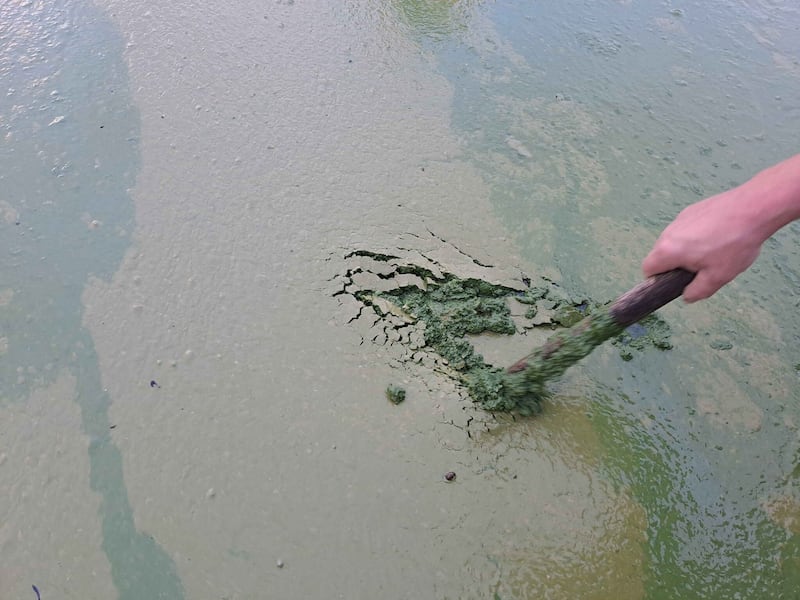
Blue-green algae can rapidly increase in warm weather and sunlight if fed by enough nitrate and phosphate nutrients, mainly from farm run off, sewage and fertiliser.
Recently introduced Zebra Mussel into the lough has revealed the extent of the algae, as the creatures are expert at filtering the water to make it clearer, allowing sunlight to penetrate to greater depths.
The foul odor being report in various places is the algae decaying and rotting, releasing what the Environment Agency describe as a "pungent smell like rotten eggs or rotting plants".
In a statement, DAERA said: “Blue-green algal blooms have been confirmed at multiple locations within Lough Neagh over recent weeks.”
Environment Agency staff this week confirmed blue=green algae at Battery Harbour and Ballyronan Marina as well as Washing Bay and Brockag.
“However, given the widespread nature of it within the Lough, it is possible that it may wash up on any part of the shoreline,” a spokesperson said.
James Orr, NI director of Friends of the Earth, said what is emerging from the lough is the result of decades of neglect, poor sewage infrastructure and a policy and practise favouring the “massive expansion” of agribusiness.

For years, he added, the north had been able to secure derogations from the EU’s nitrates directive, still in place but policed now by the UK Office for Environmental Protection (OEP).
Mr Orr said the toxic algae is spreading into waterways snaking out of Lough Neagh and across various parts of the north.
DAERA confirmed the algae in Lough Neagh moving down the River Bann to the north coast leading to the closure of beaches in early July.
Gerry Darby, strategic manager, Lough Neagh Partnership, said: "The presence of blue algae highlights the wider issue of the need for an inter-governmental strategic management plan for Lough Neagh.
"We have been lobbying for more than 20 years for Lough Neagh Partnership to be granted more control and responsibility for the strategic challenges, issues and opportunities which the Lough presents, as Lough Neagh does not have a government working group. It is important to note that Lough Neagh does not even have a basic navigation authority.
"Hopefully the algae bloom will encourage government departments to take a greater interest in our biggest natural resource."
Meanwhile, the OEP has expressed disappointment the deadline for a Environmental Improvement Plan has been missed. It was due to be in place at the end of July.
Helen Venn, the OEP’s chief regulatory officer for the OEP said: “The EIP is an important next step in a new approach to protecting and improving the environment, and should set out clearly what is to be achieved and how.
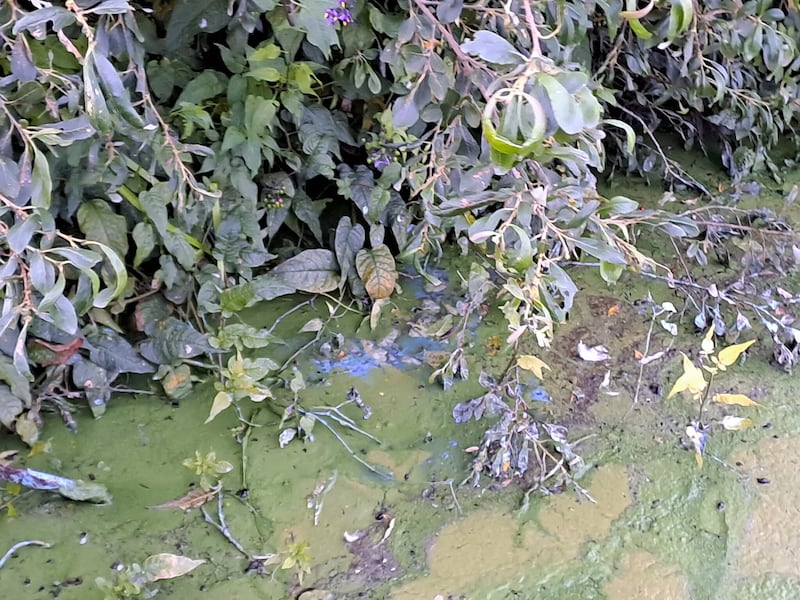
“While we understand the wider context and difficulties in finalising the plan, we are in ongoing talks with DAERA to understand what the timeline is for the EIP to be in place.
“From the outset we have stressed the importance of keeping any delay to a minimum and the time used to ensure the EIP is the best it can be.”
DAERA has also failed to complete its review of a four-year-old Nutrient Action Programme designed largely designed to improve water quality. It is supposed to be replaced by a new programme by October.
Permanent Secretary Katrina Godfrey, in a letter to the OEP, said “it has been not been possible in the absence of ministers to complete the four yearly review”.
She said the department is moving forward on “a range of policies and actions which will directly or indirectly align with the aim of the NAP to reduce excess nutrient inputs to the environment”.
The OEP, a UK-wide independent watchdog, receives its funds from the London Parliament and various assemblies to keep it operating. It was initially provided funding "significantly below...what is needed".
It did receive some additional funding at the end of June, but Dame Glenys Stacey, OEP chair, said: "We require further resources this year and in future years."
